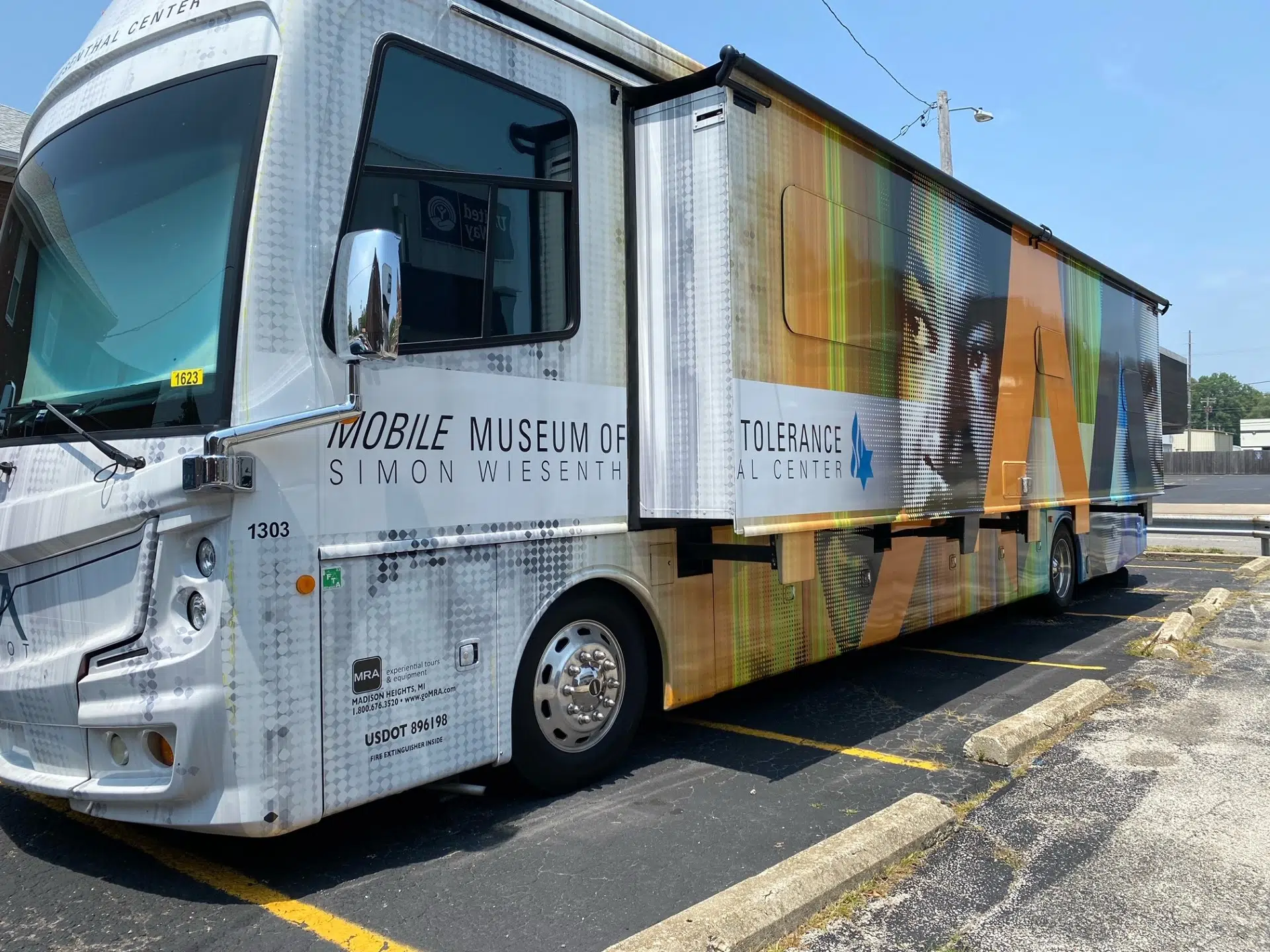
March 18th,2024 – There is a new way young people in Illinois can stand up against hate and intolerance, at a time when tensions are high across the nation and around the world.
The Simon Wiesenthal Center created the Mobile Museum of Tolerance to help educate Illinoisans about the dangers of hate and intolerance, especially through content that can spread quickly and easily online. The MMOT travels around Illinois visiting schools, public libraries, and in public places in many communities to provide detailed workshops that increase awareness and prepare participants to fight hateful speech and actions.
This year, the Illinois Commission on Discrimination and Hate Crimes has joined the Wiesenthal Center and the MMOT for an essay contest called “Your Voice: Changing the World, One Speech at a Time.”
The contest asks students in grades six through 12 to write about a quote from Simon Wiesenthal, a survivor of Nazi death camps in World War II. “The history of man is the history of crimes, and history can repeat. So information is a defense against repetition.” Students are asked to write a three-minute speech of about 450 words on this quote and how it applies in their lives as they work to be proactive against intolerance, hate and bigotry.
Submissions are due to mmot@wiesenthal.com by Friday, March 22. Finalists will then be asked to make video recordings of their written essays, and a distinguished panel of judges will select winners on April 14.
New to Illinois classrooms is the “Combat Hate: A Digital Media Literacy Workshop” program, which has proven very successful in New York and has been provided on the MMOT bus visits in Illinois in recent years.
The MMOT provides a trained facilitator to help students recognize hateful messages online and how they affect others and gives them tools to help respond appropriately and make a difference with their own posts. The initiative already has the strong support of instructors in one Chicago suburban school that has done the training twice.
MMOT leaders say the two efforts are important ways to help young people recognize the dangers of hate speech and help them overcome intolerance and ignorance.
“The goal of the MMOT and our work in schools and communities across the state is to help people recognize the threats around them and take meaningful steps to stop them. We had many powerful submissions in last year’s contest and are excited to see the creativity and deep personal conviction driving this year’s participants,” said Alison Pure-Slovin, director of the Simon Wiesenthal Center, Midwest Region.
For more on the essay contest and the MMOT, visit the MMOT’s website at https://mmot.com/, or follow MMOT on social media. · Facebook: https://www.facebook.com/MobileMOT/ · Instagram: https://www.instagram.com/mobilemuseumoftolerance_
By: Traymar Brown
